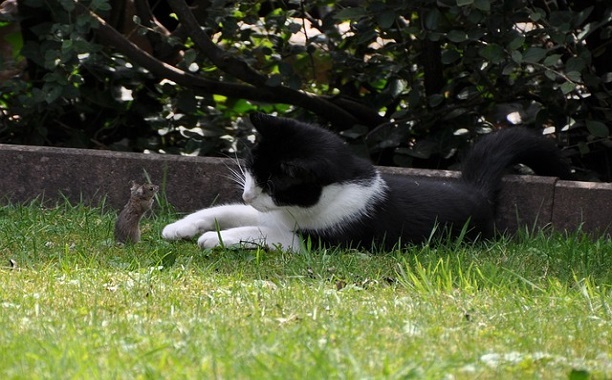Cats have always enjoyed toying with their prey. In the hall of famous adversaries, Batman had the Joker, Cinderella had her wicked stepmother and mice have their cats. Russian research has highlighted a recent revelation which explores the connection between cat urine and mouse fatalities.
The researchers unearthed a link between feline urine and baby mice that prevents the baby mice from following their natural instincts and fleeing from danger, as the urine contains a chemical called L-Felinine which mice naturally respond to. When they smell L-Felinine, they flee. Mice are evolved to experience stress and panic when they pick up on the chemical scent in order to avoid altercations with feline fiends.
When mice become desensitized to the scent, primarily because they grow up around cats, they no longer identify the chemical with danger. The findings, uncovered by Vera Voznessenskaya and colleagues, were presented in Prague at the conference of the Society for Experimental Biology which takes place annually as reported by BBC.
L-Felinine which typically causes mice not only to flee but to produce smaller litters and in some cases abort litters, is part of the inbuilt survival strategy of mice and has been part of their DNA for thousands of years. When mice are exposed to L-Felinine during a critical developmental period of two-weeks, they essentially turn off their evolutionary response to the chemical and fail to respond to cats in the same way which is potentially hazardous when it comes to their survival.
Unfortunately, mice still experience fear and stress when exposed to the scent of L-Felinine, but they are unable to flee. The research explores the ways in which learned behavior can overwrite genetic lineage.
Voznessenskaya explained that although the baby mice exposed to L-Felinine were more sensitive to it, they simply were unable to run away, which is “probably useful for the mice” because just like cats, they often reside within close proximity to humans.
Their physical sensitivity [to the chemical] was actually much higher (…) More of their receptors detect the compound and they produce higher levels of stress hormone. You get a higher response, but less behavior and habituating like this is probably useful for the mice; they can’t run away, because they need to live around humans and food. And cats (also) live around humans.
The findings suggest animals are able to bypass their natural responses to one another when thrown together in a domestic setting. The mice, conditioned to associate humans with food, have learned to live alongside them and where you find humans, you find cats.
In other news, people infected with the cat poop parasite known as T. gondii are twice as likely to develop schizophrenia, according to the finding’s of an unrelated study.
























